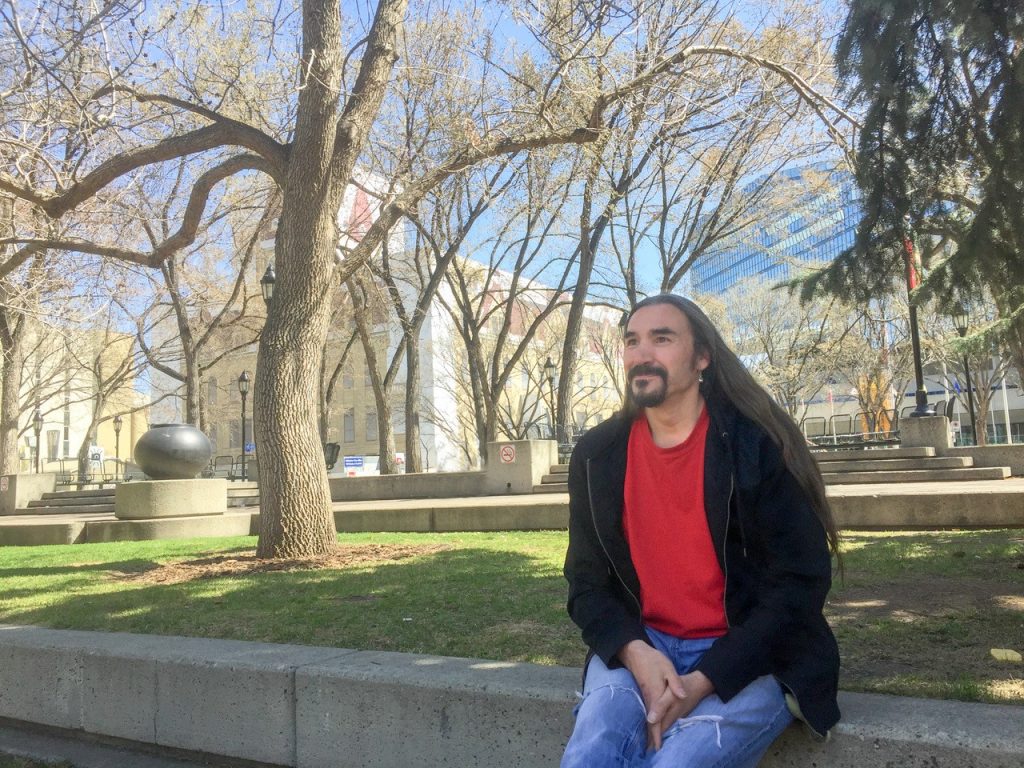I Am A Proud First Nations
“My twin brother and I were taken out of our mom’s care frequently. At the age of 6, I became a permanent ward of the government and spent 10 years in foster care. I was always kind of on the fringe of things and felt like I didn’t belong anywhere. During my later teen years, I had worked in the bush as a logger, but I was in an accident and hurt my back. I was big and strong – it seemed that logging was my life – but life had other plans for me.
When I was of age, I found my mom in Hobbema and we went back to live there. That same feeling of not belonging continued, because the way we were brought up (in foster care) was so different from life on the reservation. We didn’t stay long – there was so much violence, abuse, drugs and alcohol. We came back to Calgary and I was in the midst of (an alcohol) addiction and moved right into accessing shelters and living in the streets.
In 2000, I had liver failure and went into treatment. When I came out, I ended up associating with the same people I’d been with on the streets and I quickly became a drug addict. Dealing drugs became a way to maintain the habit. Then my brother passed. Grief was so deep and I became angry, isolated and very hostile towards people. Over the years, I was in and out of jails and the penitentiary. The last time I was in, I thought to myself, ‘what am I doing? This is a waste of my life, living in a cage.’ An opportunity came in the jail to participate in an Indigenous cultural reconnection program. I got to experience ceremony, made the connection to the higher power, developed some hope and that gave me what I needed to change.
I started temping for an agency in Calgary and was doing well, working full-time for a company. One day, I was asked to provide a criminal background check and I had to tell them about my criminal history. I lost my job. I was back on the streets, living on an abandoned bus and an addict again. One day, I went back to the bus and it was gone with all my stuff. My home was gone and I ended up on the mats at Alpha House. Someone from their housing team connected me with the Calgary John Howard Society, as I had signed up for their housing program shortly after I left the penitentiary and, within two weeks, I moved in to a place. I then went to CUPS and they got me in the methadone program.
I have to think back on the core thing that was consistent throughout the ups and downs, and it was my participation and connection to the great spirit. Shortly after, I became a member of the Grateful or Dead peer support group and began to volunteer as an Outreach Worker, working out of the Sheldon Chumir clinic. They asked me to provide a criminal background check before I could volunteer. When I didn’t pass, I was told that they could not use me. But a lady by the name of Diane that worked there said, ‘you are not doing this to this man, we are going to give him a chance.’
Now I’m a Support Worker at Alpha House and I’ve been housed for almost four-and-a-half years. I just think about my own recovery process and the challenges I faced. I bring people to meetings to connect them with others. I can laugh and joke with clients and have very real conversations. When I was making those prayers in jail it changed something intrinsically within me – now I really have that deep desire to help other people. But I didn’t do this alone.
There were pioneers along the way that believed in me and saw beyond me being a criminal, an addict and homeless. People say, ‘you need to see to believe’, but the truth of the matter is – you need to believe to see.”

